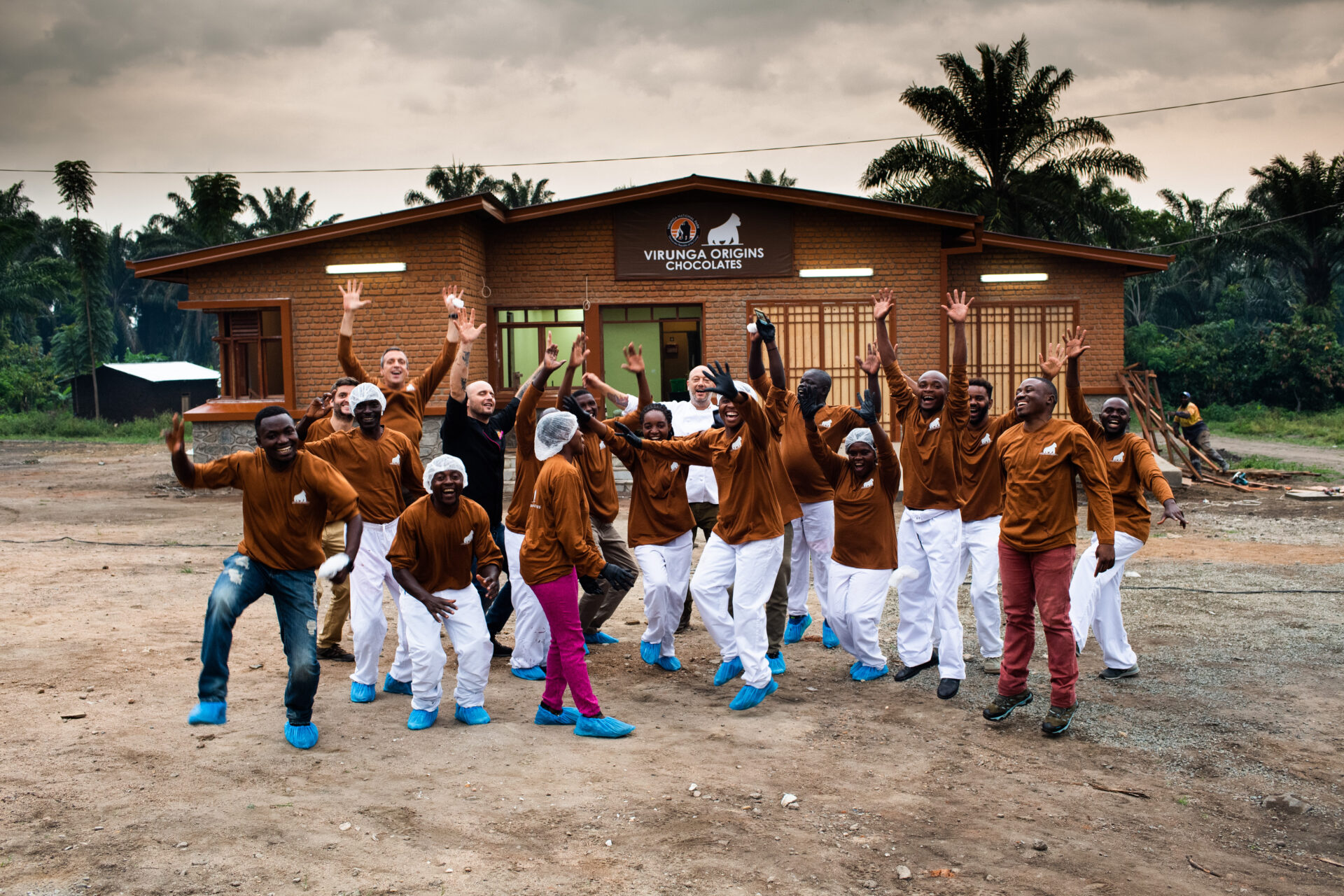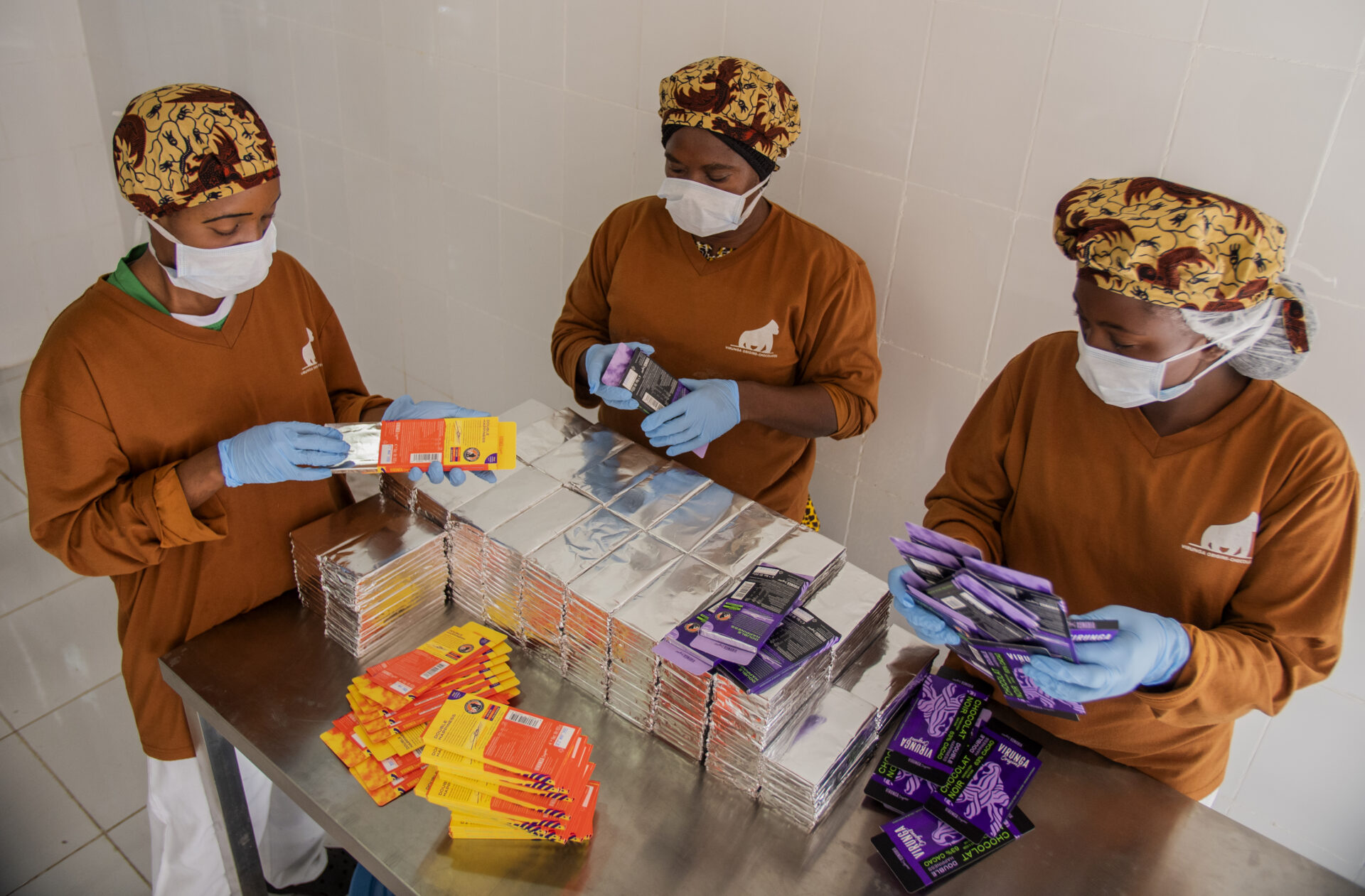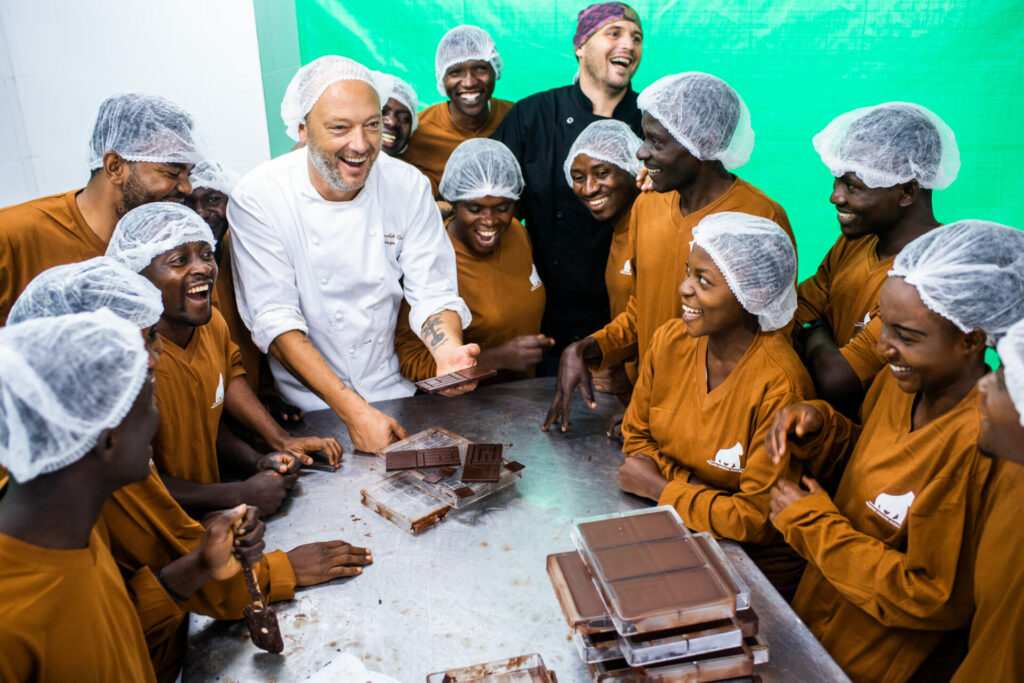Few would argue that chocolate is a glorious product. But for one region in the eastern Democratic Republic of Congo (DRC), chocolate has been transformative, saving it from a vicious cycle of armed conflict and illegal exploitation of natural resources.
Virunga National Park, Africa’s oldest protected area, has been on the front line of a human-wildlife conflict for several years, devastating not only the UNESCO World Heritage Park's wildlife but also the lives of local communities, with many turning to illegal activities for income.
In an effort to turn things around, park director Prince Emmanuel de Merode – who belongs to the highest nobility in Belgium but doesn't use his title for his work – had a vision for the local community: an "alternative economy" to provide sustainable jobs as an alternative to working for the rebels.
Virunga Origins was created, set up with the help of Belgian entrepreneurs and eventually giving birth to the country's first chocolate factory.
Discovering chocolate
Before the opening of the chocolate factory in Mutwanga, on the edge of the park, few locals had ever tasted chocolate, explained Dominique Persoone, one of Belgium's most famous chocolatiers who developed the recipe for Virunga's chocolate.
"There are some 10,000 cocoa plantations around Virunga, the cocoa beans were practically growing in people's backyards, but nobody knew what to do with them," he told The Brussels Times. Despite the lack of local knowledge, chocolate became the key to a brighter chapter for the region.
"We had the idea to train cocoa farmers to care for and sustainably grow plantations, as well as roast and peel the seeds so that they could produce their own chocolate," Persoone explained.

Several of the employees in front of the smaller factory. Credit: Virunga Origins
Besides the safety risks (the M23 rebel group remains active in the park, threatening park staff, communities and projects there), there was very little industrial development and work started from scratch.
"We had to explain vital aspects of the production of chocolate, as well as basics like the European hygiene standards." But before long chocolate was being produced.
"I remember the first time we took the chocolate out of that mould. Some of the workers got tears in their eyes, they were so proud that they created their own product. It was fantastic to witness."
Double happiness
Originally, the aim was to export to the international market, however, the pandemic hit shortly after the factory was fully operational, complicating distribution abroad.
"But the whole point of this project is to provide locals with jobs so they can earn money in an honest way, so we decided to keep the factory open and sell the chocolate as cheaply as possible to people in the community," Persoone said.
"Soon enough, people across the whole country were eating our chocolate and we started selling to neighbouring Rwanda and Uganda." At one point the company was struggling to keep up with demand. "So we invested in a factory that is ten times bigger than the one we currently have."
Some 30 people were employed at the start but once the new factory is up and running, it is hoped that some 250 people can be employed.

The chocolate is packaged individually by hand to create more jobs. Credit: Virunga Origins
The production process focuses on job creation: for example, the chocolate is wrapped individually by hand by the widows of the park's rangers. The enterprise also ensures job quality: by selling their beans to Virunga Origins, farmers get a higher price than by selling to exporters.
"The thousands of farmers who have worked on the project have seen their living standards improve. Some have been able to put a real roof on their houses and pay their children's school fees," said de Merode, who Persoone refers to as the "coolest prince ever."
The chocolate's marketing line is "double happiness" and Persoone stresses the feel-good factor: "We want to make sure that at every step of the process, from the cocoa farmer to consumer, everyone is happy. Every bite of chocolate has a positive impact on the lives of local communities and animals in the park."
Gradual improvements
Almost four years after the social enterprise was first founded, it is going from strength to strength. All profits are reinvested in developing a local economic fabric, improving the lives of locals and conserving protected areas and endangered animals in the park, including gorillas.
The social enterprise also sells coffee, chia seeds and soap derived from local products, and is looking to bring vanilla onto the local market and experimenting with vegan chocolate.
"We can't change the world with chocolate alone but this has already led to the creation of some 1,500 small businesses. Restaurants are popping up and most importantly, violence has really decreased in the Mutwanga region," Persoone highlighted.
Virunga Origins products are already available in Persoone's boutiques and several Belgian shops and can be ordered online.

